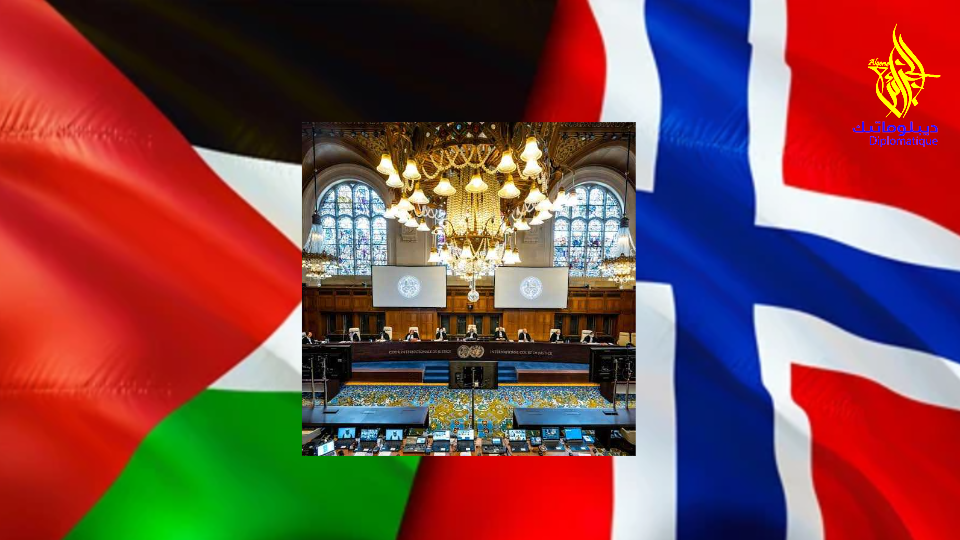The Advisory Opinion initiated by Norway confirms that Israel must facilitate the provision of humanitarian aid and other life-saving provisions in Palestine.
“The Advisory Opinion from the International Court of Justice (ICJ) today confirms what Norway has long held: Israel must allow the UN, humanitarian organizations, and third states to deliver life-saving humanitarian assistance and basic services to Palestinians living under occupation. This is a clear message from the Court,” said Prime Minister Jonas Gahr Støre.
Norwegian Initiative
The ICJ’s opinion follows a resolution adopted by the UN General Assembly in December last year, upon Norway’s initiative. The resolution asked the UN’s principal judicial organ to assess Israel’s obligations under international law, including its duty to facilitate humanitarian access to Gaza. The resolution was supported by 137 countries.
The work of the UN and other humanitarian actors in Gaza has also been highlighted as essential in President Trump’s 20-point Peace Plan to end the war and achieve a peaceful resolution to the conflict between Israel and Palestine. The ICJ’s Advisory Opinion further clarifies the extent of Israel’s legal obligations, which are also relevant in the implementation of the Agreement.
“Due to the occupation and the ongoing war, the two million inhabitants of Gaza depend on humanitarian assistance. The Court confirms the indispensable role of UNRWA in the current situation, and that Israel is obliged not to obstruct the Agency’s operations. The recent escalation, with multiple ceasefire violations, shows how fragile the situation is. Life-saving aid must continue to enter, and the ceasefire must hold,” said Minister of Foreign Affairs Espen Barth Eide.
Important Clarifications
In the West Bank, including East Jerusalem, the occupation and closure regime are becoming increasingly restrictive. Israel also imposes strict limitations on how the UN and the international community can work to improve the lives of Palestinians in the West Bank. The ICJ’s advisory opinion provides important legal clarifications regarding Israel’s obligations as an occupying power.
It also outlines Israel’s specific obligations to ensure that the international community at large – including the UN, aid organizations, and third States like Norway – can be present and assist the population in Palestine. This follows, inter alia, from the Fourth Geneva Convention, to which Israel is a party, and customary international law.
“Also in the West Bank, parts of the population rely on assistance from the UN and other actors to access education, healthcare, and food. When Israel hinders this work, it breaches its obligations under international law. Respect for international law is a prerequisite for a rules-based world order,” said Mr Eide.
Follow-Up in the UN
Together with several other countries, Norway will now follow up the Advisory Opinion with a separate resolution in the UN General Assembly. This is standard practice when the General Assembly has requested an advisory opinion. The resolution will express clear support for the ICJ’s findings and, most importantly, help ensure their implementation to improve the situation for the Palestinians.
These findings include:
That the State of Israel, as an occupying power, is required to fulfil its obligations under international humanitarian law. These obligations include the following:
to ensure that the population of the Occupied Palestinian Territory has the essential supplies of daily life, including food, water, clothing, bedding, shelter, fuel, medical supplies and services;
to agree to and facilitate by all means at its disposal relief schemes on behalf of the population of the Occupied Palestinian Territory so long as that population is inadequately supplied, as has been the case in the Gaza Strip, including relief provided by the United Nations and its entities, in particular the United Nations Relief and Works Agency for Palestine Refugees in the Near East, other international organisations and third States, and not to impede such relief;
to respect and protect all relief and medical personnel and facilities;
to respect the prohibition on forcible transfer and deportation in the Occupied Palestinian Territory;
to respect the right of protected persons from the Occupied Palestinian Territory who are detained by the State of Israel to be visited by the International Committee of the Red Cross; and
to respect the prohibition on the use of starvation of civilians as a method of warfare.
That, as an occupying power, the State of Israel has an obligation under international human rights law to respect, protect and fulfil the human rights of the population of the Occupied Palestinian Territory, including through the presence and activities of the UN, other international organisations and third States, in and in relation to the Occupied Palestinian Territory.
That the State of Israel has an obligation to cooperate in good faith with the United Nations by providing every assistance in any action it takes in accordance with the Charter of the United Nations, including the United Nations Relief and Works Agency for Palestine Refugees in the Near East, in and in relation to the Occupied Palestinian Territory.
That the State of Israel has an obligation under Article 105 of the Charter of the United Nations to ensure full respect for the privileges and immunities accorded to the United Nations, including its agencies and bodies, and its officials, in and in relation to the Occupied Palestinian Territory.
That the State of Israel has an obligation under Article II of the Convention on the Privileges and Immunities of the United Nations to ensure full respect for the inviolability of the premises of the United Nations, including those of the United Nations Relief and Works Agency for Palestine Refugees in the Near East, and for the immunity of the property and assets of the Organization from any form of interference.
That the State of Israel has an obligation under Articles V, VI and VII of the Convention on the Privileges and Immunities of the United Nations to ensure full respect for the privileges and immunities accorded to the officials and experts on mission of the United Nations, in and in relation to the Occupied Palestinian Territory.
